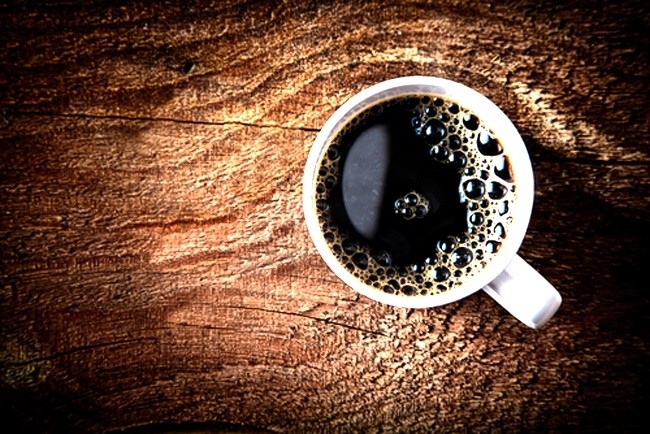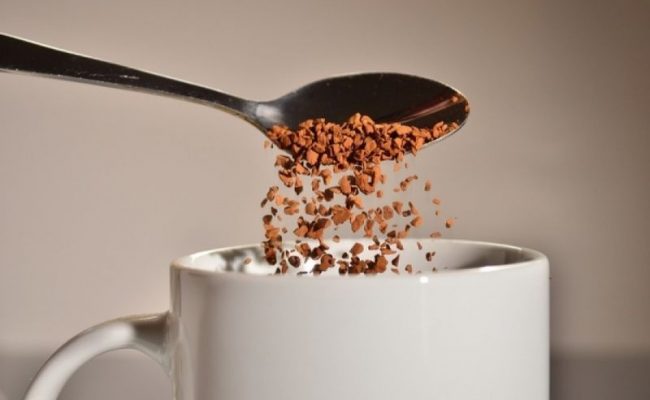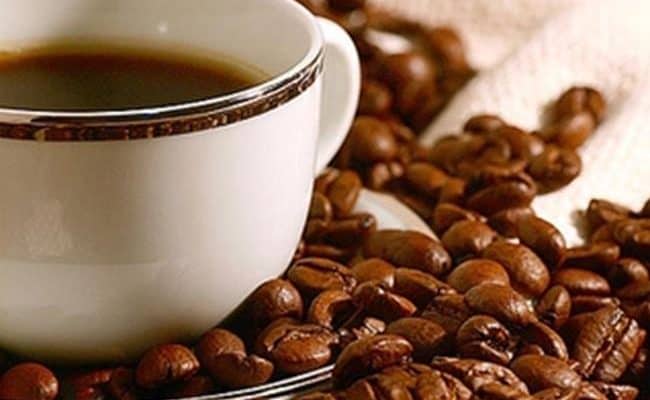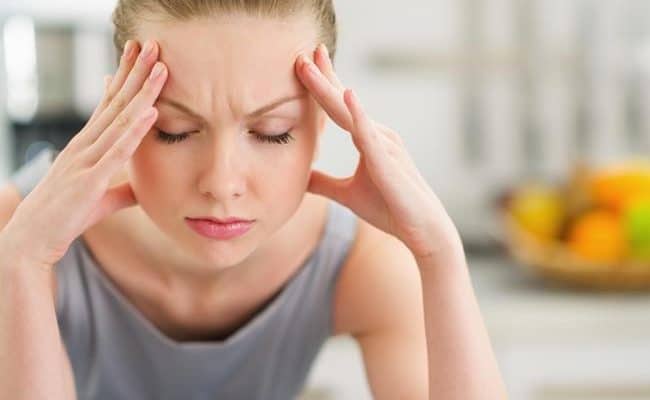
In general, a typical cup of regular coffee contains about 100 mg of caffeine. Therefore, a typical cup of decaf coffee can have around 3-5 mg of caffeine, but this can vary.
Coffee and tea are the highest contributors of caffeine to people’s diets around the world. According to data from Reuters (1), 64 percent of American adults usually drink a cup of coffee daily in 2018.
The number of Americans drinking coffee daily was at a low in the 1990’s at or below 50 percent of Americans drinking coffee daily. However, coffee has made a comeback of sorts as more people are drinking it now than before.
What may have caused an increase in coffee consumption is the positive health outcomes associated with coffee from research studies. Coffee was once viewed as a negative diet component, but when consumed in moderation it may actually provide certain health benefits.
Caffeine’s effect on the body can vary widely person to person. Caffeine can cause rapid heart rate, make you feel jittery or have other unpleasant side effects. People may also need to lower their caffeine intake if taking certain medications.
Because of this, not everyone can or should drink regular coffee every day. Some people with caffeine sensitivity can drink decaf coffee to enjoy the taste and health benefits from coffee without the side effects of caffeine.
How is decaf coffee made?
In order for coffee to be considered decaf, 97 percent of the caffeine from coffee beans needs to be removed.
Caffeine is a natural component of coffee beans, and the caffeine amount can vary between varieties of beans.
There are three ways to lower the caffeine from coffee beans:
- Using organic chemical solvents
- Using carbon dioxide
- Using a process with only water (Swiss Water method)
Decaf coffee production can use any three of these methods to remove caffeine. There has been concern with the chemical solvent method, as the chemicals used in this process have been shown to be a carcinogen in some animal studies.
However, the residue left behind in coffee using this process is virtually zero, and there has not been evidence to suggest consuming drinks with this method of lowering caffeine has any adverse health effects (2).
Regardless, if you are concerned about consuming decaf coffee with only the water method, check your packaging or local coffee house to determine what process is used to make decaf coffee.
How much caffeine in decaf compared to regular coffee
Just because coffee is labeled decaf doesn’t mean it is caffeine free. How much caffeine is in regular or decaf coffee can vary depending on the beans used.
A 2006 study (3) looked at the caffeine content in various decaf coffee drinks. In the first study phase, 10 different decaf coffees from various coffee establishments were analyzed for caffeine content. Caffeine content ranged from 0-13 mg per 16 oz coffee.
In the second phase, researchers analyzed caffeine content from decaf espresso and coffee from Starbucks. Six samples were collected from the same Starbucks store and analyzed.
The caffeine content in the espresso ranged from 3-15.8 mg, and the caffeine content in the decaf coffee ranged from 12-13.4 mg per 16 oz serving.
Health benefits of decaf coffee
Regular consumption of both decaf and regular coffee has been associated with various health benefits including:
- Lowered risk of type 2 diabetes (4)
- Promoting liver health (5)
- Inversely associated with total and cause specific mortality (6)
- Potential lowered BMI with coffee intake (7)
Caffeine may be part of the reason for health benefits associated with coffee intake, but other components such as the antioxidants may also play a protective role. Researchers are still clarifying how coffee positively influences health.
It could also be something else in the diet or lifestyle of coffee drinkers that contributes health benefit.
Is decaf better than regular coffee?
Either decaf or regular coffee has been shown to provide potential health benefits. Switching from regular to decaf coffee appears to retain most, if not all, health benefits associated with coffee intake.
However, besides sensitivity to caffeine, switching to decaf coffee may not provide additional health benefits.
Therefore, drinking either beverage can be considered a part of a healthy diet. Keep in mind just adding coffee to your diet won’t make up for eating unhealthy foods and not exercising.
Simply adding coffee won’t translate into weight loss or a noticeable improvement in health measurements. It is only one part of the whole picture of your total food and beverage intake.
In general, up to about 3-4 cups of coffee a day is considered a healthy intake for most adults. There is individual variance with this recommendation.
Other low caffeine drinks
Sometimes drinking decaf is still too much caffeine for the body (or medication interactions). If you are looking for caffeine free drinks, herbal teas may be your best bet. Black and green teas still contain caffeine. Make sure you are choosing all herbal teas if you want something hot to drink without the caffeine.
Conclusion: How much caffeine is in decaf coffee?
Decaf coffee by definition needs to contain 97 percent less caffeine than the regular coffee provides. Coffee beans can vary in caffeine content, so not all decaf coffees will have the same amount of caffeine.
In general, a cup of decaf coffee can still provide between 0-10 mg of caffeine. Some decaf coffees may provide more. A typical cup of regular coffee can provide around 100 mg of caffeine.
The decaffeination process can be done three different ways: with chemical solvents, carbon dioxide or with a water method.
Decaf coffee has been shown to provide most of the health benefits associated with consuming regular coffee. More research is ongoing to determine health benefits or concerns with drinking both types of coffee.










